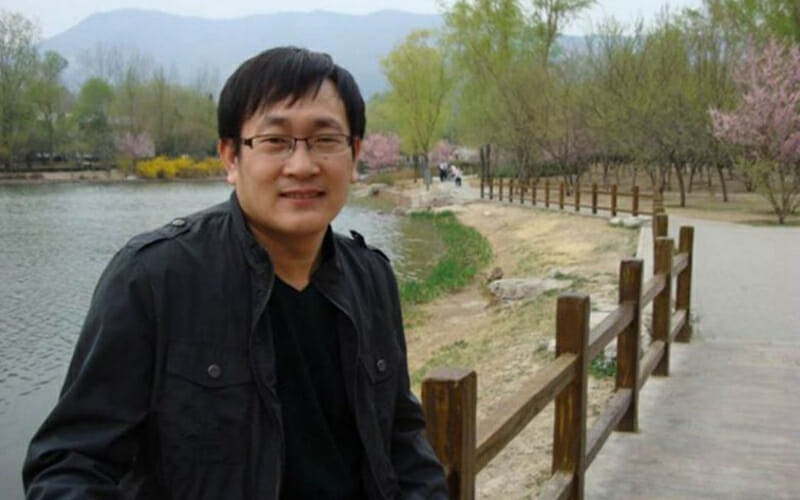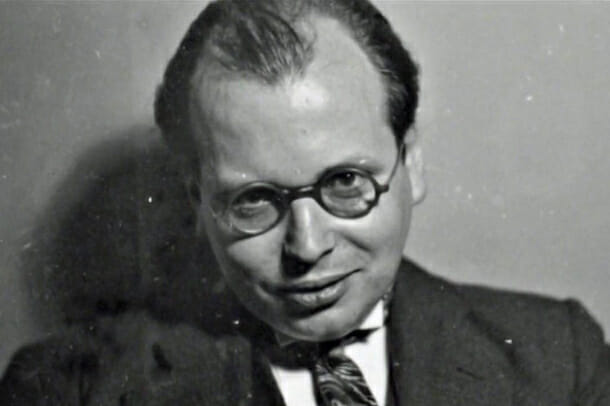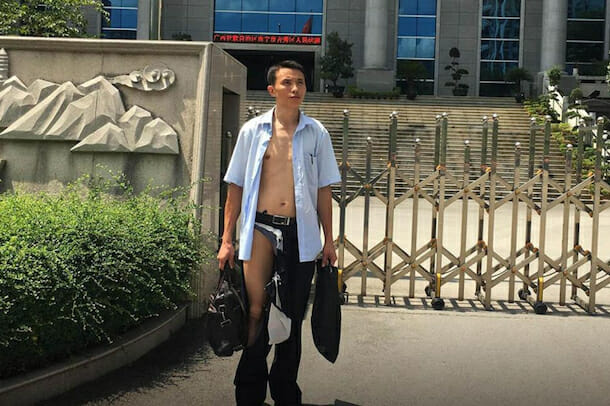
China’s War on Lawyers
Eighty years ago, a beaten and broken man limped into a bathroom of a barracks in the Dachau concentration camp. After five years of torture at the hands of his Nazi captors, fearful that he may finally break and betray his friends, attorney Hans Litten fashioned a noose and hung himself. His “crime” was that as a lawyer in 1931, he put the Nazi party on trial for an attack on a dance hall where a left-wing workers association was meeting. Three people were killed and twenty others injured. During the course of the trial, Litten called Adolf Hitler to the stand and cross-examined him for hours. According to reports, Hitler was so shaken and enraged by the experience that Litten’s name could never be uttered in his presence. As the Nazis ascended to power, Litten turned down opportunities to flee Germany insisting that he needed to stay for his clients. In the hours following the Reichstag fire in 1933, Hitler got his revenge. Litten, at the top of Hitler’s enemies list, was arrested, imprisoned and tortured until his suicide in Dachau in 1938.

Today, it is more important than ever to keep Litten’s memory alive, when governments around the world have declared an unofficial war on lawyers who are fighting for the human rights of their clients. One of the worst offenders is China, who has faced growing international criticism for its actions against human rights attorneys and advocates in the country.
The 709 Crackdown
The repression known as the 709 Crackdown began in July 2015 when 248 human rights lawyers were detained and interrogated for work they had done on behalf of their clients. Charges were filed against a number of those detained for a variety of “crimes” under Chinese law, including “subversion,” which can carry a life sentence, and “subversion of state power,” which can result in up to 15 years in prison. The Chinese government has also suspended law licenses, engaged in enforced disappearances and filed and prosecuted arbitrary criminal cases against human rights defenders in China.
Three years on, according to Amnesty International, of the 248 individuals who were detained, nine were convicted of the “crimes” of “subverting state power,” “inciting subversion of state power” or “picking quarrels and provoking trouble.” Three people were given suspended sentences and one “exempted from criminal punishment” while remaining under surveillance. As of July 2018, four remain imprisoned.
The most disturbing case arising out the 709 Crackdown is that of Wang Quanzhang’s. He was arrested August 15, 2015, for his work defending members of the Falun Gong, victims of illegal and unfair land expropriation and political prisoners. Wang has been held incommunicado ever since his arrest. He has not been allowed to meet with his family or the lawyers hired by his family. Radio Free Asia reported on July 13 2018, that Wang was reportedly seen by a colleague in the Tianjin No. 1 Detention Center and that a message was passed along to Wang’s wife (who herself has been monitored and harassed by national security agents) that he is in good mental and physical shape. However, given that no-one including his lawyers has been allowed to visit Wang and because the No. 1 Detention Center refuses to acknowledge Wang’s incarceration, there is a grave cause for concern. Many of those released from prison report horrific abuse including electric shocks so strong that they knock the victim unconscious on the spot, water torture, force feeding, extreme sleep deprivation, beatings and psychological abuse.
Although most of the 709 Detainees are no longer in prison, their persecution and that of other human rights lawyers and advocates is ongoing. Human rights reporter ChinaChange.org recently reported “the campaign to remove lawyers who defend human rights, or any lawyer who is outspoken or rejects governmental control through the Lawyers’ Associations, appears to be deliberate, coordinated and sweeping.” Other coercive efforts include government controlled justice bureaus ordering that lawyers report each and every case that is taken on. Communist Party cells are also reportedly being set up in law firms where lawyers are now required to disclose personal information like religious beliefs and social media activity. As the authorities strip attorneys of their right to practice law, it is increasingly more difficult for plaintiffs to assert human rights cases, as they are finding it impossible to find representation.

Outside of detention, the most repressive tactic used by Chinese authorities to repress the work of human rights lawyers, is to have them disbarred. Take the case of Wang Yu, the first lawyer arrested when the crackdown began. In April 2018, Wang Yu discovered that the Beijing Bureau of Justice had marked her professional status as “unregistered.” In addition, her law firm, the Beijing Fengrui Law Firm, was disbanded in the aftermath of the 709 Crackdown. Wang Yu now finds herself blacklisted and some law firms have received warnings not to employ her, while others tactfully decline to employ her. This is, in effect, defacto disbarment because in China, a lawyer without a firm is unable to practice and if a lawyer is without a firm for six months, their license is automatically annulled.
The tentacles of the Chinese repression extends beyond the initial arrests to the lawyers who represented the 709 Detainees. Wang Yu’s own lawyer, Li Yuhan, was arrested in October 2017 and charged with provoking quarrels and stirring up trouble and fraud. She now faces the likelihood of a prison sentence and the loss of her law license.
Inciting Subversion of State Power and International Law
Article 35 of the Chinese Constitution grants citizens freedom of speech and of the press. Article 51, however, places limits on those freedoms if they “infringe upon the interests of the state, of society and of the collective, or upon the lawful freedoms and rights of other citizens.” Pursuant to Article 51, China has passed a number of criminal laws which places restrictions on the freedom of speech and of the press; namely, the crime of “inciting subversion of state power,” under Article 105, Paragraph 2, of China’s Criminal Law. However, neither the Constitution, the Criminal Law nor judgments of Chinese courts have clearly delineated the line between acceptable and prohibited speech.
The United States Congressional Executive Commission on China has analyzed the legality of the way in which China applies its state subversion law. It issued a report in March 2012 detailing the case of Zhu Yufu who was tried and convicted for “inciting subversion of state power.” In February 2012, a Chinese court sentenced Zhu Yufu, a democracy activist, to seven years in prison finding Zhu’s writings and activities “harmed national security.” Specifically, the Court held that in 2011 Zhu sent a poem and information to a number of people “inciting” them to commit subversion. In its decision that Court, however, failed to explain exactly how Zhu’s actions harmed national security.
Article 19 of the International Covenant on Civil and Political Rights (signed in 1998 but not ratified by China) and Article 29 of the Universal Declaration of Human Rights require that restrictions on freedom of speech and expression be limited to that which is necessary to protect national security, public order and/or public health or morals. The United Nations Human Rights Council stated in a 2009 resolution that governments should refrain from imposing penalties on those engaged in “[d]iscussion of government policies and political debate; reporting on human rights, government activities and corruption in government; engaging in election campaigns, peaceful demonstrations or political activities…”
China’s Criminal Law regarding inciting subversion of state power violates both the ICCPR and UDHR because it is vague and overbroad. Human rights advocates have decried its application as a pretext for the maintenance of state power and is used to punish and stifle peaceful political expression and activity. For example, a 2008 report by the human rights organization, Chinese Human Rights Defenders, noted that in China, “speech in and of itself is interpreted as constituting incitement of subversion” and that “anything from calling for an end to one-party rule to criticizing corruption has been construed as ‘inciting subversion of state power.’” Moreover, the UN Special Rapporteur on the promotion and protection of the right to freedom of opinion and expression issued a 2011 report which criticized Chinese state subversion laws stating that it: “remains concerned by the vague formulation of some domestic legal provisions that prohibit…‘inciting subversion of state power’…Such vague and broad terms clearly do not meet the criterion of legal clarity.”
Conclusion
Despite massive governmental efforts to constrain the efforts of human rights lawyer and advocates, according to Sophie Richardson, China Director for Human Rights Watch: “China’s community of human rights lawyers has thrived despite government harassment and detention, assisting countless victims of rights abuses and other injustices.” As civil society honours the memory of Hans Litten, let us also remember the sacrifice and bravery of China’s legal heroes and call upon the Chinese government to honor its international obligations and cease its attacks on the rule of law.

